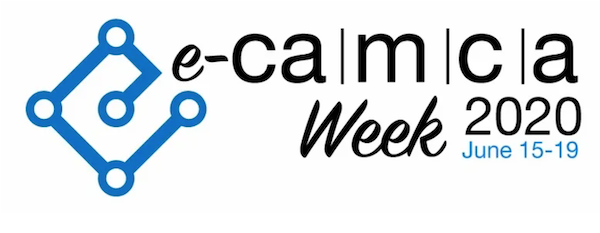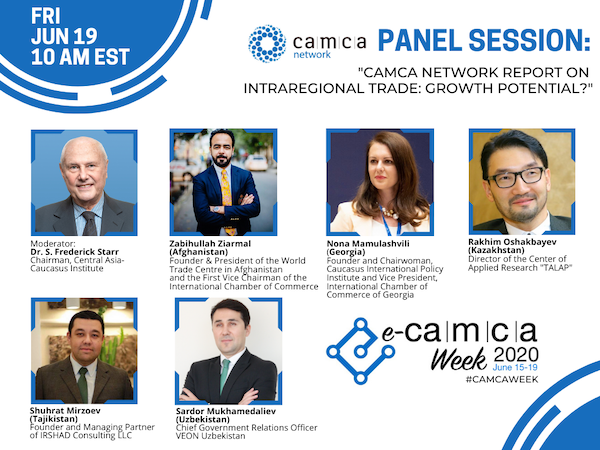[VIDEO POSTED] CAMCA Forum Event: Afghanistan's Emerging Modern Economy, Presented by Men and Women Who Are Building It
Afghanistan's Emerging Modern Economy, Presented by Men and Women Who Are Building It
Co-organized by the Central Asia-Caucasus Institute, the CAMCA Network and Rumsfeld Foundation
This Forum was the first in the series of events offering glimpses of the new Afghanistan which our press neglects, in the words of men and women who are building it.
Speakers:
Ms. Zuhal Atmar, President and Owner of Gul-Mursal Waste Paper Recycling Factory, the first woman run recycling plant in Afghanistan
Mr. Farshid Ghyasi, President and CEO of NETLINKS Inc. Afghanistan; Partner at Click.af, the leading e-commerce website in Afghanistan
Mr. Assadullah Zamir, Founder of Abreshum Venture; Founder of solar energy companies Akbar Zahir and Lunar; CAMCA Network Member
Moderator:
S. Frederick Starr, Chairman, Central Asia-Caucasus Institute at American Foreign Policy Council
When: Wednesday, April 7, 2021
The event was livestreamed on the CACI Facebook page and is now available on YouTube.
[VIDEO POSTED] CACI & SRSP Online Forum: Peace in Afghanistan: A Kazakhstani Perspective
Peace in Afghanistan: A Kazakhstani Perspective
Amid continued conflict in Afghanistan, Central Asian states have continued to intensify their engagement with their southern neighbor. Led by Kazakhstan and Uzbekistan, Central Asians are no longer seeking to contain Afghanistan but are instead actively contributing to the country’s development. Kazakhstan’s commitment to peace and development in Afghanistan is long-standing, and its contributions manifold. In this event organized in cooperation with the Embassy of Kazakhstan, Ambassador Kaliyev discussed the situation in Afghanistan, the role of foreign players and actors, Afghanistan’s impact on regional security, as well as the role of Europe and America and avenues for cooperation with Kazakhstan.
This online forum was the first of a series of events marking the 30th anniversary of the independence of Kazakhstan.
Speakers:
H.E. Talgat Kaliyev, Special Representative of the President of Kazakhstan for Afghanistan.
S. Frederick Starr, Chairman, Central Asia-Caucasus Institute & Silk Road Studies Program
Moderators:
Svante E. Cornell, Director, Central Asia-Caucasus Institute & Silk Road Studies Program
Aida Yermekkalieva, Chargé d’Affaires a.i., Embassy of Kazakhstan, Stockholm
When: March 3, 2021, 9:30 AM EST / 3:30 PM CET
The event is now available on YouTube.
CACI and the Rumsfeld Foundation hosted e-CAMCA Week 2020
In lieu of our in-person annual gathering, the CAMCA Regional Forum organizers are hosting a virtual e-CAMCA Week.
The June 2020 CAMCA Forum, to be held in Almaty, Kazakhstan, was postponed until June 2021. In its place, CACI and the Rumsfeld Foundation organized the e-CAMCA week of online events and publication. Find recordings of the e-CAMCA Week virtual events held over June 15th-19th at the CAMCA Forum YouTube Channel, as well a variety of original #CAMCAweek publications and resources for our CAMCA Forum community at www.camcaforum.org,.

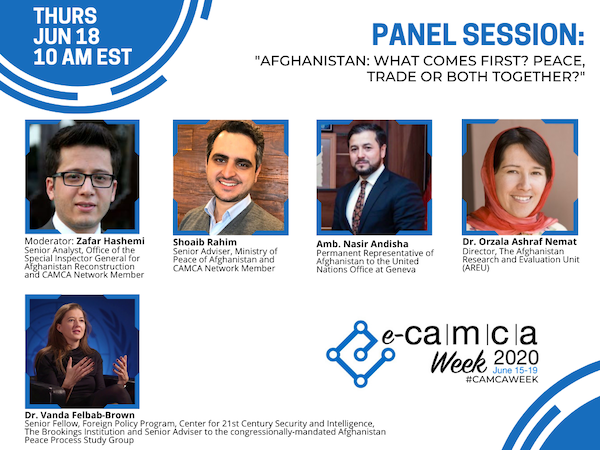
E-CAMCA WEEK PUBLICATIONS
Welcome Letter
Letter from Secretary Donald Rumsfeld
e-CAMCA Week 2020 participants
Meet CAMCA Entrepreneurs
View features of some successful regional entrepreneurs from our CAMCA Network
"Caucasus & Central Asia Post COVID-19" Series- Volume I
Digital Transformation in the CAMCA Region
Post COVID-19: Challeges & Opportunities for the Region
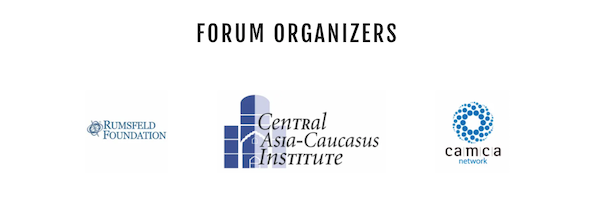
CACI Director Svante E. Cornell Interview on AFPC Insights Episode 5: The Changing Politics of Central Asia
On June 26, CACI Director, Dr. Svante E. Cornell discussed the recent e-CAMCA (Central Asia, Mongolia, Caucasus, Afghanistan) regional conference organized by CACI and the Rumsfeld Foundation, the region's response to COVID-19, progress with political and economic reforms, risks and opportunities for regional states with regard to China-U.S.-Russia competition in the region.
Listen to the extended interview with a q&a session: https://bit.ly/3g0nqk5
Watch the recording of the interview: https://www.youtube.com/watch?v=yPBMeP0yZGA
Scroll down to listen to the full recording of the event.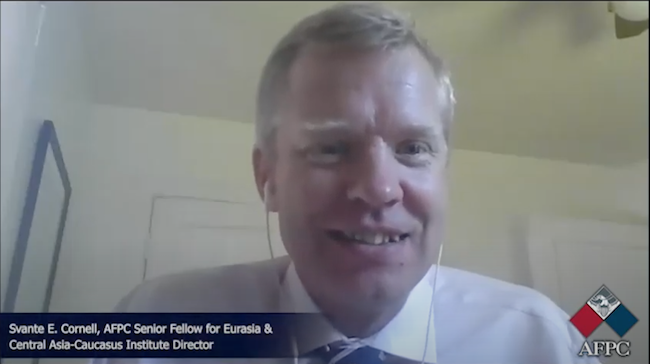
e-CAMCA Week 2020
In lieu of our in-person annual gathering, the CAMCA Regional Forum organizers are hosting a virtual e-CAMCA Week.
From June 15th-19th we will be hosting a daily live speaker session or panel, as well as releasing a variety of original content and helpful resources, for our CAMCA Forum community. We’ve pulled together a terrific collection of experts from across sectors, including members of the CAMCA Network, that will be delivering the latest on what you need to know about the region during the COVID-19 crisis and beyond.
Live video events will take place at 10 AM EST daily from June 16th-19th .
TUNE IN HERE to our Facebook page for live video events (full agenda below) and
SUBSCRIBE BELOW to receive the aforementioned release
VIEW THE FULL AGENDA DETAILS HERE


E-CAMCA WEEK PUBLICATIONS
Welcome Letter
Letter from Secretary Donald Rumsfeld
e-CAMCA Week 2020 participants
Meet CAMCA Entrepreneurs
View features of some successful regional entrepreneurs from our CAMCA Network
"Caucasus & Central Asia Post COVID-19" Series- Volume I
Digital Transformation in the CAMCA Region
Post COVID-19: Challeges & Opportunities for the Region

